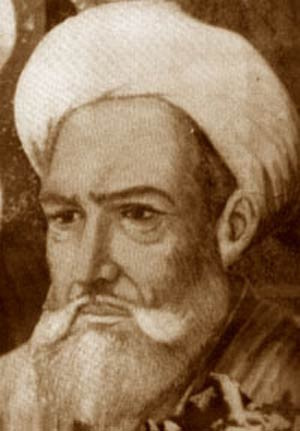"The Philosopher of Illumination - Shahab al-Din Suhrawardi
In the mystical city of Aleppo, where the ancient citadel stood as a sentinel against the shifting sands of time, there lived a philosopher whose insights into the nature of reality and consciousness would forever transform the landscape of Islamic philosophy. His name was Shahab al-Din Suhrawardi, and his legacy would transcend the boundaries of time and space.
Born into a world where the mystical traditions of Sufism intersected with the philosophical inquiries of Greek thought, Suhrawardi's early years were marked by a deep longing for spiritual enlightenment. Raised amidst the labyrinthine alleys and bustling markets of 12th-century Aleppo, he was exposed to a rich tapestry of ideas from a young age, drawn from the wisdom of the Quran, the Hadith, and the mystical teachings of Sufism.
From the dusty libraries of Aleppo's madrasas to the sacred precincts of Cairo's al-Azhar University, Suhrawardi journeyed far and wide in search of philosophical wisdom, guided by the belief that the quest for truth was the noblest of endeavors. Along the way, he studied under some of the greatest philosophers and mystics of his time, immersing himself in the intricacies of metaphysics, epistemology, and mysticism.
It was here, amidst the shimmering mosques and bustling souks of the Islamic world, that Suhrawardi's intellect blossomed like a desert rose, unfolding layer by layer to reveal the dazzling beauty of his philosophical insights. Drawing upon the wisdom of ancient Greek philosophers like Plato and Plotinus, he sought to synthesize the diverse strands of thought into a coherent and systematic framework.
Yet, Suhrawardi's quest for philosophical enlightenment was not without its challenges. Living in a world where sectarian divisions and political strife often threatened to obscure the path to truth, he faced fierce opposition from orthodox theologians who viewed his mystical teachings with suspicion and mistrust.
Undeterred by their condemnation, Suhrawardi continued to pursue his studies, guided by the belief that the quest for truth was the highest calling of the human soul. In his magnum opus, the ""Hikmat al-Ishraq"" (The Philosophy of Illumination), he laid out his philosophical system, offering insights into the nature of reality, consciousness, and the soul that continue to inspire seekers of truth to this day.
As the years went by, Suhrawardi's fame spread far and wide, drawing philosophers and mystics from all corners of the Islamic world to study his works. His philosophy of illumination became known as one of the most influential philosophical systems in Islamic thought, inspiring generations of thinkers to explore the depths of human consciousness and the mysteries of existence.
Yet, for all his brilliance, Suhrawardi remained humble, ever mindful of the divine source of his inspiration. His legacy, however, would endure long after his passing, a beacon of light amidst the darkness of ignorance, a testament to the enduring power of human intellect and spiritual insight.
Influence and Legacy:
Suhrawardi's philosophy of illumination would go on to influence generations of philosophers and mystics, shaping the course of Islamic thought for centuries to come. His insights into the nature of reality and consciousness continue to inspire scholars and seekers of truth around the world, offering a glimpse into the mysteries of existence and the human soul.
Yet, despite his monumental contributions, Suhrawardi's name would often be overshadowed by those of later luminaries. It was not until the modern era that Western scholars would come to recognize the depth and beauty of his philosophical insights, whose philosophy of illumination remains a cornerstone of Islamic philosophy and mysticism.
Today, as we ponder the mysteries of existence and the nature of consciousness, let us remember Suhrawardi, whose legacy endures as a testament to the enduring power of human intellect and spiritual insight.
Notable Works:
1. ""Hikmat al-Ishraq"" (The Philosophy of Illumination) - A seminal work in Islamic philosophy, offering insights into the nature of reality, consciousness, and the soul.
2. ""Kitab al-Talwihat"" (The Book of Admonitions) - A collection of philosophical treatises on various topics including ethics, epistemology, and metaphysics.
3. ""Hayakal al-Nur"" (The Temples of Light) - A mystical allegory exploring the journey of the soul towards enlightenment, inspired by Suhrawardi's philosophy of illumination.
Related Scholars:
Suhrawardi's legacy resonated with later philosophers and mystics, including Ibn Arabi, Mulla Sadra, and Ibn Sina, who built upon his insights and expanded the horizons of Islamic philosophy and mysticism.
"






Delete Comment
Are you sure that you want to delete this comment ?
IslamInnovatorX
Delete Comment
Are you sure that you want to delete this comment ?
Zainab Sow
Delete Comment
Are you sure that you want to delete this comment ?
Thembi Nxumalo
Delete Comment
Are you sure that you want to delete this comment ?
Delete Comment
Are you sure that you want to delete this comment ?
Hamza Karim
Delete Comment
Are you sure that you want to delete this comment ?
EnlightenedHearts
Delete Comment
Are you sure that you want to delete this comment ?
IslamicEthos
Delete Comment
Are you sure that you want to delete this comment ?
Ali Doumbia
Delete Comment
Are you sure that you want to delete this comment ?
Delete Comment
Are you sure that you want to delete this comment ?
MuslimMavericks
Delete Comment
Are you sure that you want to delete this comment ?
GentleGuidance
Delete Comment
Are you sure that you want to delete this comment ?
IlluminateIman
Delete Comment
Are you sure that you want to delete this comment ?
SerenitySeekers
Delete Comment
Are you sure that you want to delete this comment ?
Nour Ahmed
Delete Comment
Are you sure that you want to delete this comment ?
Ahmed Nzimande
Delete Comment
Are you sure that you want to delete this comment ?
TheIslamicWave
Delete Comment
Are you sure that you want to delete this comment ?
Obiora Igwe
Delete Comment
Are you sure that you want to delete this comment ?